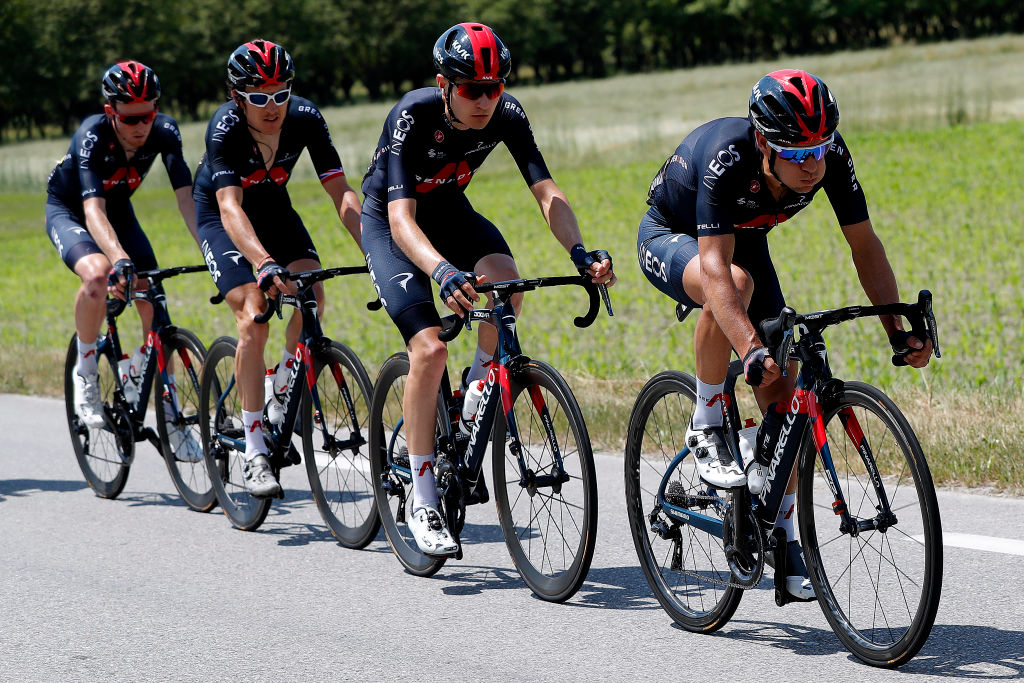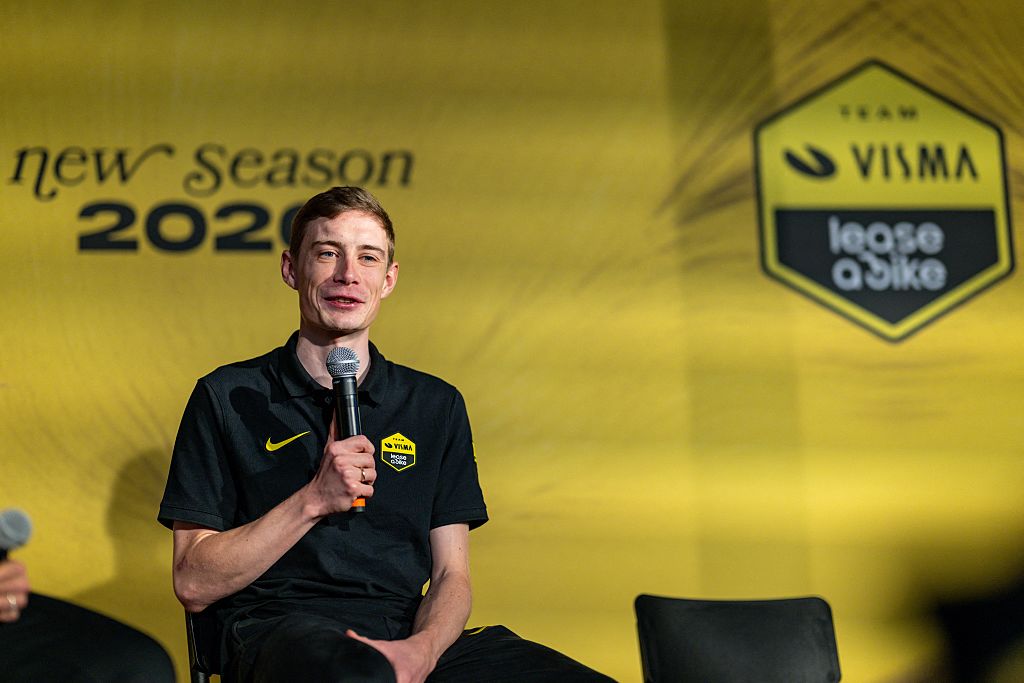Kelderman: We'll have to follow Ineos and Movistar at Dauphiné
Sepp Kuss also picks out British and Spanish teams as the strongest for the Alpine stages

The latest race content, interviews, features, reviews and expert buying guides, direct to your inbox!
You are now subscribed
Your newsletter sign-up was successful
Based on the finale of the Critérium du Dauphiné's first big mountain stage to Le Sappey-en-Chartreuse, Ineos Grenadiers and Movistar are the strongest teams in the race, and the feeling among their rivals is that they will have to follow these two outfits and hope that an opportunity or an unexpected weakness presents itself if they are to beat them come Sunday afternoon
"Movistar and Ineos are really strong teams in general, so I think they will make the race the next few days," said Bora-Hansgrohe's Wilco Kelderman. "For us, it's just a case of following. We've got a strong line-up here for the flat part of the race, but on the hills, we're missing a few guys."
The Dutchman, currently lying third overall, 12 seconds down on race leader Alexey Lutsenko, was particularly impressed with Ineos even though it was Movistar who ended up winning the stage through the Chartreuse massif thanks to Alejandro Valverde. "Ineos have a very strong lineup and that may be difficult for them to manage at times, but their three leaders could all be on the podium and any one of them could win," said the Dutchman.
"I've just got to focus on myself and Patrick Konrad, and on what we can do in the mountains. We'll just try to follow and look for opportunities. We'll see what's possible on the last climb tomorrow."
That last climb is the 17km ascent to La Plagne, where Kelderman, who like many of his rivals returned from an altitude camp just before the Dauphiné, is confident he should be able to hold his own. "At the beginning of the Dauphiné, I didn't feel very good because of the altitude camp. It always takes me a little bit of time to get in race mode, the muscles were a bit sore, but now I'm starting to feel better and better, even when racing uphill, so actually, I'm looking forward to tomorrow."
Jumbo-Visma's Sepp Kuss also picked out Ineos and Movistar for special mention today.
"They clearly wanted a sprint, so they kept the pace really high from the bottom of the final climb," said the American.
The latest race content, interviews, features, reviews and expert buying guides, direct to your inbox!
Like Kelderman, Kuss was pleased that he and teammate Steven Kruijswijk were able to stay with that fast pace, but suggested that the situation could change when the race reaches the second half of Saturday's stage, which features the hors-category ascent of the Col du Pré, quickly followed by the second-category Cormet de Roselend. After a long descent, the finale takes place on the hors-category climb to La Plagne.
"It's hard to say what's going to happen just yet because we haven't hit the really high mountains. But I think there's a lot of guys that are really strong right now and the only sure thing is that these last two mountain stages will be really exciting," said Kuss.
Groupama-FDJ directeur sportif Yvon Madiot, meanwhile, suggested that he would be advising his leader David Gaudu to follow his rivals during Saturday's stage with a view to being ready for what could be a topsy-turvy final day to Les Gets on Sunday. "I think it's best to hold back as all kinds of things can happen, especially on the final day of the Dauphiné, which has a particular flavour. It tends to be quite short and we've seen in the last few years how often things have changed on the very last day," said Madiot.
Peter Cossins has written about professional cycling since 1993 and is a contributing editor to Procycling. He is the author of The Monuments: The Grit and the Glory of Cycling's Greatest One-Day Races (Bloomsbury, March 2014) and has translated Christophe Bassons' autobiography, A Clean Break (Bloomsbury, July 2014).
